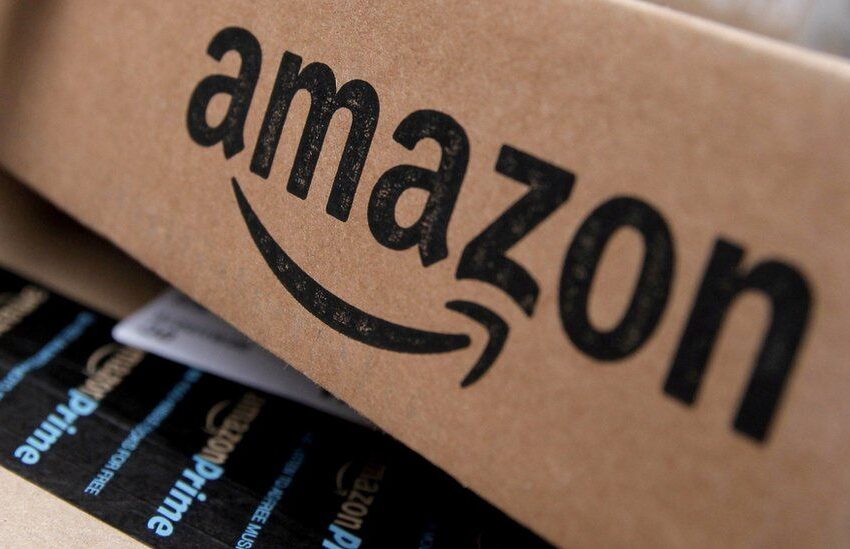
How an Amazon alum Raised $1 Million for His Fintech Startup Plans to Disrupt the Movie Business?
A key quality of market disruptors is their understanding of the business environment. They keep their finger on the pulse by leveraging news media, podcasts, online articles and more to learn about trends in the market.
That’s why Shawn Hamilton, a former Amazon production accountant, launched Conduit last year to save entertainment companies time and money by centralizing production finance operations. The black-owned fintech startup recently raised $1 million in pre-seed funding.
Disrupting Hollywood
The tumult of recent WGA and SAG-AFTRA strikes overshadows a much bigger disruption in the movie business. The arrival of a new generation of filmmaking tools has shifted power away from Hollywood’s big six studio empires and toward smaller companies that produce and distribute content independently. And some experts think that disruption is just getting started.
These disruptors have three key advantages: 1) they can offer more flexible contracts than traditional studios; 2) they can take advantage of the cheaper technology and greater accessibility of digital production; and 3) they can market to audiences in ways that traditional producers cannot. This has spelled trouble for the big studios, which are losing control of the distribution pipeline, and it could lead to a shakeout of the industry.
In the short term, this disruption may mean that fewer films are produced overall. But, over time, it will probably lead to a more diverse set of movies that are less dependent on Hollywood’s aging studio system. That will help to create a better balance between the interests of producers and consumers.
One startup that is attempting to capitalize on this trend is Factory14, which has raised $1 million in venture funding. The Seattle company plans to launch a marketplace for e-commerce retailers, similar to the one that has become the dominant model on Amazon’s Marketplace. It is backed by investment firms Fuse and Acequia Capital; Crosslink Capital; Range Ventures; and Peterson Ventures. The company has 12 employees.
Another company that is trying to make it easier for small businesses to do business online is Griptape, which has also raised $1 million. The Seattle-based fintech company aims to roll up many small businesses into a single platform. This will help them compete with Amazon and other e-commerce platforms. The company is backed by investment firms Peterson Ventures and 2lemetry.
In addition to these startups, a number of other companies are working on solutions that make it easier for small businesses to do business. For example, Plaid cofounder William Hockey bought a federally chartered bank and launched Column, which offers non-bank fintechs a suite of banking services. Another company, Sima Gandhi’s Creative Juice, caters to creators by offering them not only bank services but also funding in return for a stake in their revenues.
Streaming
In a city where high-profile bankruptcies and layoffs are as common as Starbucks coffee, fintech startups have sprung up to offer new financial services to consumers. These firms apply emerging technology to areas like online lending, investing and payments. They’ve surged in popularity as traditional banks struggle to comply with regulations and rebuild capital. The term “fintech” refers to a group of start-ups, often funded by venture capital investors, that focus on applying new tech to finance.
Streaming is the transmission of media files over the Internet without saving a copy of those files on the user’s device. The data packets that make up streaming media are sent over the Internet in a continuous stream, so the users can start watching or listening to the content before the entire file has downloaded. This method of delivering media is much faster than downloading and is used by video-on-demand (VOD) services such as Netflix, Hulu, and HBO Max.
The success of streaming has changed the economics of the entertainment industry. Instead of a company town dominated by legacy studios, the industry is now a sprawling and diverse ecosystem run by large-scale direct-to-consumer distribution platforms. The companies that own these platforms are also making huge profits from subscriptions and advertising.
But the rise of streaming has also changed the way filmmakers make movies. The digital economy has transformed production and distribution for both established and newcomer film makers. For starters, new companies can easily launch their own platforms and compete with the major players. They can also distribute their films for free through ad-supported models.
The biggest film studios have responded to this competition by launching their own streaming services. Disney/Fox has launched its own platform, Disney+, while Warner Bros. has a similar offering, Peacock. The rise of these competing services has led to a battle for consumer dollars known as the “streaming wars.”
Investors are betting that the winner of the streaming wars will be the most successful at creating and maintaining a loyal audience base. This means that producers will have to produce better quality movies and offer more content in order to stay competitive. Fortunately, there are a number of ways to do this, including using machine learning and artificial intelligence.
Original TV
GROSS: The movie and TV industry is undergoing a major shakeup. Actors are striking. Streaming services are buying up big media companies and starting their own production studios. And the traditional cable subscription model that showered riches on Hollywood for decades is disappearing. It’s changing the way people watch TV and movies — and the kind of entertainment they want to consume.
Most media executives equate TV and movie quality with high-cost attributes — a certain level of production value; brand name directors, producers and actors; expensive effects; and highly publicized marketing campaigns. But that doesn’t necessarily have to be true. Short form video, which includes things like viral videos and ephemeral content, can have just as much impact as longer format movies and shows.
And that’s why some of the biggest media companies are making a major push into original TV. It’s part of a larger strategy to manage a decline in the business that they’re used to getting from cable networks. And those companies include Paramount, which owns the CBS broadcast network as well as a bunch of cable channels including MTV and Comedy Central, and Viacom, which owns BET. All of them are owned by the same family, the Redstones — led by Shari Redstone, the daughter of legendary media mogul Sumner Redstone.
Then there’s Apple, which is trying to get into the TV game with its own original series. It recently ordered a limited drama called “Defending Jacob,” starring and executively produced by Chris Evans, who stars in the Marvel Cinematic Universe. It’s based on a 2012 novel by William Landay and written by Mark Bomback, who wrote the “Planet of the Apes” trilogy.
Another original series is Apple’s “Planet of the Apps,” an hour-long reality competition in which celebrities and investors will invest in upstart app developers. It debuted last June and features Jessica Alba, Will.i.Am, Gwyneth Paltrow and digital-marketing entrepreneur Gary Vaynerchuk as judges.
Regardless of whether or not these original series are hits, they’re creating a new type of entertainment for a generation that has never known a world where they couldn’t access the media on demand with a swipe of their finger. That will have a big effect on the way we watch television and movies in the future.
Theaters
Movie theaters are one of the last big business areas where technology companies haven’t yet cracked the code. Tech startup MoviePass, for example, has been trying to disrupt the decades-old ticketing industry with its beloved unlimited-ticket plan, but it’s struggled to develop a sustainable business model that will give it a leg up against larger theater chains that already have their own subscription programs like AMC Stubs and Cinemark Plus. And even if the movie-ticket subscription model can succeed, theaters will still have to contend with the many other entertainment options available, from video games to Netflix to home theater systems.
Despite all that, theater box office receipts have bounced back from their lowest point during the pandemic, with 2022 so far posting a 4% year-over-year jump in domestic ticket sales. But that’s still well below pre-pandemic levels, and many exhibitors are still struggling with empty theaters and revenue slumps.
The biggest chains pinned their hopes for a revival to a handful of tentpole films that could help boost attendance and revenue this fall and winter, from Black Adam to The Way of Water. But on earnings calls in February and March, they reported fourth-quarter revenue that came nowhere near what analysts had expected and warned that the industry may never recover to pre-pandemic levels.
That’s because those big-screen releases aren’t coming fast enough. As exhibitor Marcus Theatres CEO Greg Marcus explains, “We can’t continue to count on a few releases each quarter to bolster our numbers. We have to have a balance of films, and we have to have a diversity of content that appeals to all audiences.”
It’s an argument that’s been echoed by studio executives from Warner Bros. Discovery head David Zaslav to Paramount Global chief Bob Bakish, who have touted the importance of a wide-window theatrical release in order to give their movies “majesty” and avoid squandering a huge investment by rushing them to streaming services where they’ll be lost among an endless stream of content. If they don’t heed those warnings, theaters will continue to face an existential threat from their own digital competitors and the broader movement toward viewing content at home.







